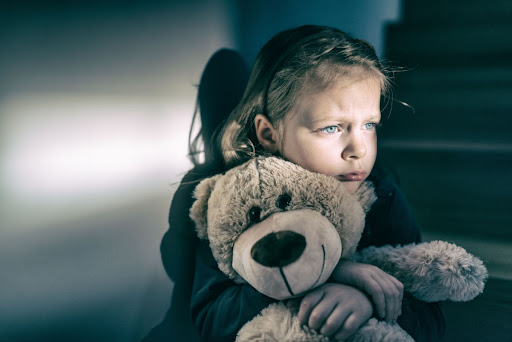Problem gambling and addictions like drugs and alcohol can cause priorities to go askew. Once an individual is introduced to a vice of their liking, the people, places, and things that were once of the utmost importance are often rearranged to rank lower on the list. Whether it is alcohol, drugs, or gambling, this shift can impact many aspects of an affected person’s life.
Now back to the question. Can disordered gambling lead to the maltreatment of children?
Unfortunately, the answer is yes. Although not intentional, emotional and physical abuse can be a byproduct of problem gambling.
The Link to Child Maltreatment and Neglect Is Real
While child well-being is widely known as impacted by parental gambling, not much research has been shown that links first-hand experiences of individuals. According to analysis gathered by the Brown School at Washington University, there was a higher risk of childhood maltreatment and neglect — along with physical discipline and alcohol use — associated with problem gambling. Additionally, research has shown that the link is primarily due to financial instability, leading to shorter tempers, parental aggression, and a constant search for additional sources of income.
How Problem Gambling Can Affect a Child
Sometimes gamblers put all of their focus on the task at hand (making wagers in an attempt to win money). From poker and blackjack to eSports and sports betting, participants can experience tunnel vision or brownout, where their attention is solely on the game they are playing. This can lead to neglecting the kids that they were entrusted with supervising and protecting. Children are often left unattended at:
- Home
- Casinos
- Race Tracks
- Sporting Events
- In a Vehicle
The offspring of problem gamblers can also be negatively impacted when missing appointments essential to a child’s overall well-being. These missed engagements can include school, doctors, places of worship, parties, and other events. Missing a doctor’s visit can be detrimental to the child’s health, and missing class can stunt their social and educational development. Since casinos strategically avoid displaying the time, gamblers can frequently lose track of how much time they have been playing.
Financial distress can also impact the immediate family of gamblers. Losing money can lead to a loss of possessions as large as cars and houses. Also, it can lead to the inability to purchase school books or pay crucial bills like gas, electricity, and water. As such, children may be forced to focus on providing income for the family or may have to live with relatives and miss out on a meaningful parental connection. This neglect can also stunt child growth and potentially lead to mental health issues that make it difficult for the child to grow successfully and find a stable lifestyle for themselves.
How to Know Your Child Is Being Affected By Gambling
In addition to some of the problems above, various physical, emotional, and behavioral problems clue you into the effects of problem gambling on your child. Parents should pay close attention to these signs and focus on addressing the situation before things go too far. Here are some of the signs to note:
- Physical Signs – Stress-related illnesses (asthma, allergies, or other chronic issues)
- Emotional Signs – Feelings of anxiety, hopelessness, hurt, guilt, inadequacy, and loneliness.
- Behavioral Signs – Alcohol abuse, running away from home, over-eating, criminal behaviors, lower academic performance
Breaking the Cycle — How to Help a Problem Gambler or a Child of One
The many issues plaguing problem gamblers and their children are often caused by neglect, including fear of abandonment, loss of trust, the feeling of guilt, and even depression. These emotional issues can become physically tolling if severe enough, and the effects of these conditions are massive and can leave generational marks on your family. Fortunately, they don’t have to get that far. Help is available for problem gamblers by utilizing the 1-800-GAMBLER confidential hotline or our many compulsive gambling treatment resources to help you or a loved one with your condition.
Breaking the cycle involves getting the proper care, and if you’re an adult who frequently gambles, you should take steps to prevent it from taking a toll on your child and the rest of your family. The best form of treatment is almost always prevention, so here are a few tips for preventing problem gambling in the long run:
- View gambling only as a form of entertainment and a part of your leisure time.
- As discussed, problem gambling often comes alongside other problematic behaviors and conditions, such as alcohol abuse. Don’t use gambling to replace other problematic behaviors. Get the help you need,
- Be sure to have a discussion with a trained professional about your gambling behaviors and how to treat them.
- Maintain a balance with all your activities.
- If you begin to feel anger, frustration, or fear, don’t hesitate to call 1-800-GAMBLER.
Child Mistreatment and Neglect Don’t Have to Befall Your Family — Turn to 800-GAMBLER for Your Problem Gambling Needs
If you see children being affected, take action. From assisting with teenage gambling in Atlantic City to helping adults with a problem gambling in Freehold, NJ, the Council on Compulsive Gambling of NJ is here to lend a hand.
To find the right approach, consult one of our experts by calling our hotline or visiting our website. Also, there are numerous Gamblers Anonymous self-help meetings available seven days a week in New Jersey and all over the United States. Remember, there is a solution for both you and your child. Friends, family, and loved ones can all be part of helping an individual in need. So call 1-800-GAMBLER today and open up a world of resources, expertise, and information that can help you take back control of your behavior.



